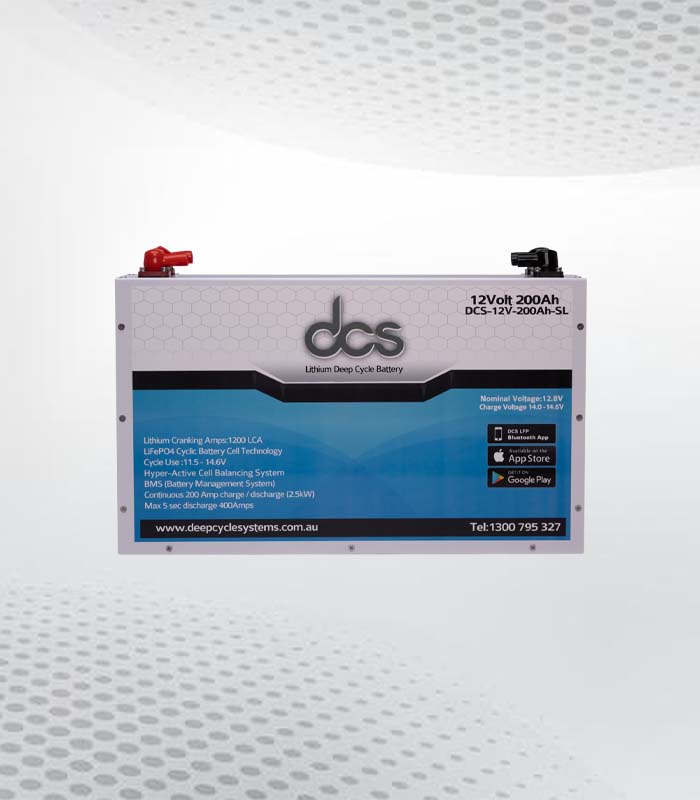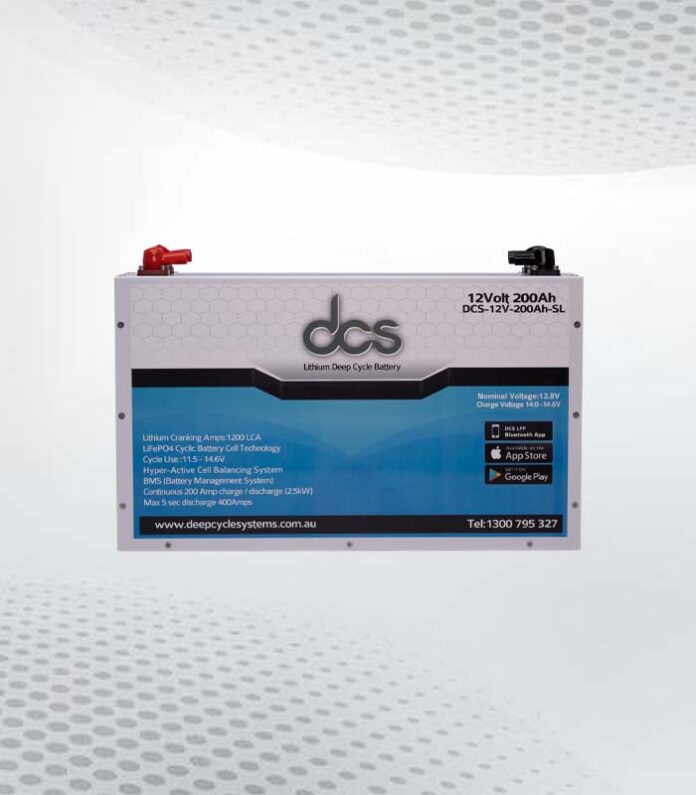Off-grid living has become increasingly popular in recent years. One of the most important components of off-grid living is the battery system. Lithium batteries are becoming popular among people who want to live off the grid. These batteries are known for their durability, efficiency, and long life span. However, there are still some questions surrounding these batteries. How do they work? What are their benefits? How can you maintain them? In this post, we will explore the world of Off Grid Lithium Battery systems by answering frequently asked questions and providing expert insights. You will learn everything you need to know about off-grid lithium battery systems, including how they can power your home, how to install them, and how to maintain them for optimal performance. Join us as we unleash the power of off-grid lithium battery systems!
Introduction to Off Grid Battery Systems
Off Grid Battery systems have revolutionized how we harness and store energy in remote locations or areas without access to traditional power sources. These cutting-edge systems provide a reliable and sustainable solution for powering various applications, from residential homes and cabins to RVs, boats, and telecommunications equipment.
Lithium batteries have quickly gained popularity over traditional lead-acid batteries due to their superior performance, longer lifespan, and higher energy density. These advanced batteries are more efficient and environmentally friendly, making them an ideal choice for off-grid energy storage.
This introductory section will delve into the fundamentals of off-grid lithium battery systems, exploring their key components, benefits, and applications. Whether you are a seasoned off-grid enthusiast or new to the concept, this guide aims to provide valuable insights and answers to common questions surrounding these innovative energy solutions. Join us on this journey as we unlock the potential of off-grid lithium battery systems and empower you to make informed decisions for your energy needs.
Benefits of Off Grid Battery System
Off Grid Battery System offers many benefits, making them a popular choice for powering remote locations and providing backup energy solutions. These systems are known for their efficiency, reliability, and sustainability, making them a versatile option for various applications.
One of the key benefits of off-grid lithium battery systems is their high energy density, which allows them to store a significant amount of energy in a compact and lightweight package. This makes them ideal for off-grid installations where limited space and weight are a concern.
Moreover, lithium batteries have a longer lifespan than traditional lead-acid batteries, providing a more reliable and cost-effective energy storage solution in the long run. They also have a higher cycle life, meaning they can be charged and discharged more times before needing replacement.
In addition, off-grid lithium battery systems are known for their fast charging capabilities and high efficiency, allowing for quick and effective energy storage and retrieval. This can be especially advantageous in off-grid settings where energy needs may fluctuate or require rapid charging.
Key Components of an Off Grid Solar Batteries
When setting up an Off Grid Solar Batteries, it is crucial to understand the key components that make up the system. These components work together to ensure reliable energy storage and distribution in off-grid settings.
- Lithium Batteries: The heart of the system, lithium batteries are known for their high energy density, long lifespan, and efficiency. They store the energy generated by solar panels or other renewable sources when needed.
- Charge Controller: This component regulates energy flow from the solar panels to the batteries. It prevents overcharging and protects the batteries from damage, ensuring optimal performance and longevity.
- Inverter: An inverter converts the DC power stored in the batteries into AC power, used to power household appliances and electronic devices. It is essential for running standard AC-powered equipment in off-grid setups.
- Solar Panels: Solar panels capture sunlight and convert it into electricity, then store it in batteries. The number and size of solar panels depend on the system’s energy requirements and the available sunlight in the area.
- Battery Monitoring System: This system provides real-time data on the performance and health of the batteries, allowing users to monitor energy levels, charging status, and overall system efficiency.
Expert Insights on Designing and Installing Off-Grid Lithium Battery Systems
Designing and installing off-grid lithium battery systems requires a deep understanding of energy storage, power requirements, and system integration. To shed light on this complex process, we consulted with industry experts to provide valuable insights.
One key aspect highlighted by experts is the importance of conducting a thorough energy audit before designing an off-grid lithium battery system. This involves assessing the energy needs of the specific application, understanding peak power demands, and factoring in variables such as weather conditions and seasonal fluctuations. Users can optimize energy efficiency and ensure reliable power supply by customizing the system based on this comprehensive analysis.
Furthermore, experts emphasize the significance of selecting high-quality components and ensuring proper installation practices. From choosing the right lithium batteries with appropriate capacity and voltage ratings to implementing efficient wiring and safety measures, attention to detail is crucial in maximizing the performance and longevity of the off-grid system.
Moreover, experts stress the significance of ongoing monitoring and maintenance to ensure the optimal operation of off-grid lithium battery systems. Regular checks on battery health, charge levels, and system performance can help identify potential issues early on and prevent costly breakdowns.
Tips for Maximizing the Efficiency and Performance of Off-Grid Lithium Battery S ystems
ystems
There are several key tips to remember to maximize the efficiency and performance of off-grid lithium battery systems. Firstly, battery banks must meet our energy requirements. Understanding your energy consumption patterns and sizing your battery bank accordingly will ensure that you have enough stored energy to power your off-grid system effectively.
Secondly, regular maintenance and monitoring of your battery system are essential for optimal performance. This includes keeping the batteries clean, inspecting them for any signs of damage, and regularly monitoring their state of charge. By properly maintaining your batteries, you can extend their lifespan and ensure they operate at peak efficiency.
Furthermore, investing in high-quality components, such as charge controllers and inverters, can also help maximize the efficiency of your off-grid lithium battery system. These components are crucial in regulating energy flow in and out of the battery bank, so choosing reliable and efficient equipment is key to maximizing performance.
Lastly, consider implementing energy-saving practices and technologies to reduce the energy consumption of your off-grid system. This could include optimizing the placement of solar panels for maximum sunlight exposure, using energy-efficient appliances, and implementing smart energy management systems.
Case Studies: Successful Implementations of Off-Grid Lithium Battery Systems
Case studies provide in-depth insights into successful implementations of off-grid lithium battery systems. By examining real-world scenarios where these systems have been utilized effectively, we can glean valuable lessons and best practices for our projects.
One notable case study involves a remote village in a mountainous region that lacked access to the main power grid. The village achieved self-sufficiency in energy production by deploying an off-grid lithium battery system combined with solar panels. This improved the residents’ quality of life and opened up new opportunities for economic development.
In another case study, a telecommunications company implemented off-grid lithium battery systems to power their remote cell towers. Ensuring uninterrupted power supply could enhance network reliability and coverage in rural areas where grid electricity is unreliable or unavailable. This resulted in improved communication services for underserved communities.
These case studies highlight the versatility and effectiveness of off-grid lithium battery systems in various applications, ranging from residential to commercial settings. By studying successful implementations, we can better understand the potential benefits and challenges associated with adopting this technology, ultimately guiding us towards making informed decisions for our off-grid projects.
Addressing Common Challenges and Troubleshooting Off-Grid Lithium Battery Systems
Addressing common challenges and troubleshooting off-grid lithium battery systems is crucial for ensuring optimal performance and longevity. One common issue users face is improper installation, leading to subpar performance and potential safety hazards. Following the manufacturer’s guidelines and consulting with experts is essential to ensure proper installation procedures.
Another challenge is overcharging or undercharging lithium batteries, which can significantly impact their lifespan and efficiency. Monitoring the charging process, using appropriate charging equipment, and setting up proper charging parameters are key steps to prevent these issues.
Moreover, temperature fluctuations can also affect the performance of lithium batteries. Extreme temperatures can lead to reduced capacity and efficiency. Temperature control measures, such as insulation or ventilation, can help mitigate these challenges and optimize battery performance.
In the case of troubleshooting, it is important to diagnose the root cause of the problem before attempting any fixes. Common troubleshooting steps may include checking the wiring connections, assessing the battery voltage, and inspecting for any physical damages or abnormalities. Consulting with experts or referring to the manufacturer’s guidelines can provide insights into effective troubleshooting techniques.
Future Trends and Innovations in Off-Grid Lithium Battery Technology
As the demand for off-grid lithium battery systems continues to rise, the industry is experiencing exciting advancements in technology and innovations. Several key future trends are expected to shape the off-grid energy landscape.
One of the most significant trends is the continued development of high-capacity lithium battery systems that offer increased energy storage capabilities. This will enable off-grid users to store more energy from renewable sources such as solar panels or wind turbines, providing greater independence from traditional grid sources.
Another important innovation on the horizon is integrating smart technology and monitoring systems into off-grid lithium batteries. These advancements will allow users to remotely monitor and control their energy storage systems, optimize energy usage, and ensure maximum efficiency.
Furthermore, research and development efforts focus on enhancing lithium batteries’ durability and lifespan, making them more reliable and cost-effective for off-grid applications. Innovations in battery chemistry and manufacturing processes will lead to longer-lasting and more sustainable energy storage solutions.
FAQs
Are off-grid battery systems expensive?
Off-grid battery systems can vary in cost depending on factors such as battery type, capacity, and brand. While the initial investment may be higher compared to grid-based electricity, these systems can provide long-term cost savings. By generating and storing your electricity, you become less reliant on expensive grid-based power, reducing your monthly electricity bills over time.
How long do off-grid batteries last?
The lifespan of off-grid batteries can vary depending on the type of battery and how well they are maintained. Lead-acid batteries typically last between 5 to 15 years, while lithium-ion batteries can last up to 15 to 20 years. It’s important to follow manufacturer guidelines for maintenance and regularly monitor battery levels to ensure optimal performance and longevity.
Can off-grid battery systems power an entire home or business?
Yes, off-grid battery systems can be designed to power an entire home or business. The size and capacity of the battery system will depend on your energy requirements and the number of appliances and systems you need to power. It’s essential to accurately assess your energy needs and consult with professionals to determine the appropriate size and capacity for your specific situation.
Conclusion
In conclusion, embracing the sustainable power of off-grid lithium battery systems is not just a trend but a transformative shift towards a greener and more efficient energy future. These innovative systems provide reliable power solutions for off-grid locations and contribute significantly to reducing carbon footprints and promoting sustainability. By harnessing the power of lithium batteries, individuals and communities can enjoy cleaner energy sources that are both environmentally friendly and cost-effective in the long run. The versatility and durability of lithium battery systems make them ideal for various applications, from remote cabins and RVs to emergency backup power for households and businesses.
This Article Was First On Published
| Related Business Listings |
| Directory Submissions |
| Regional Directory |

